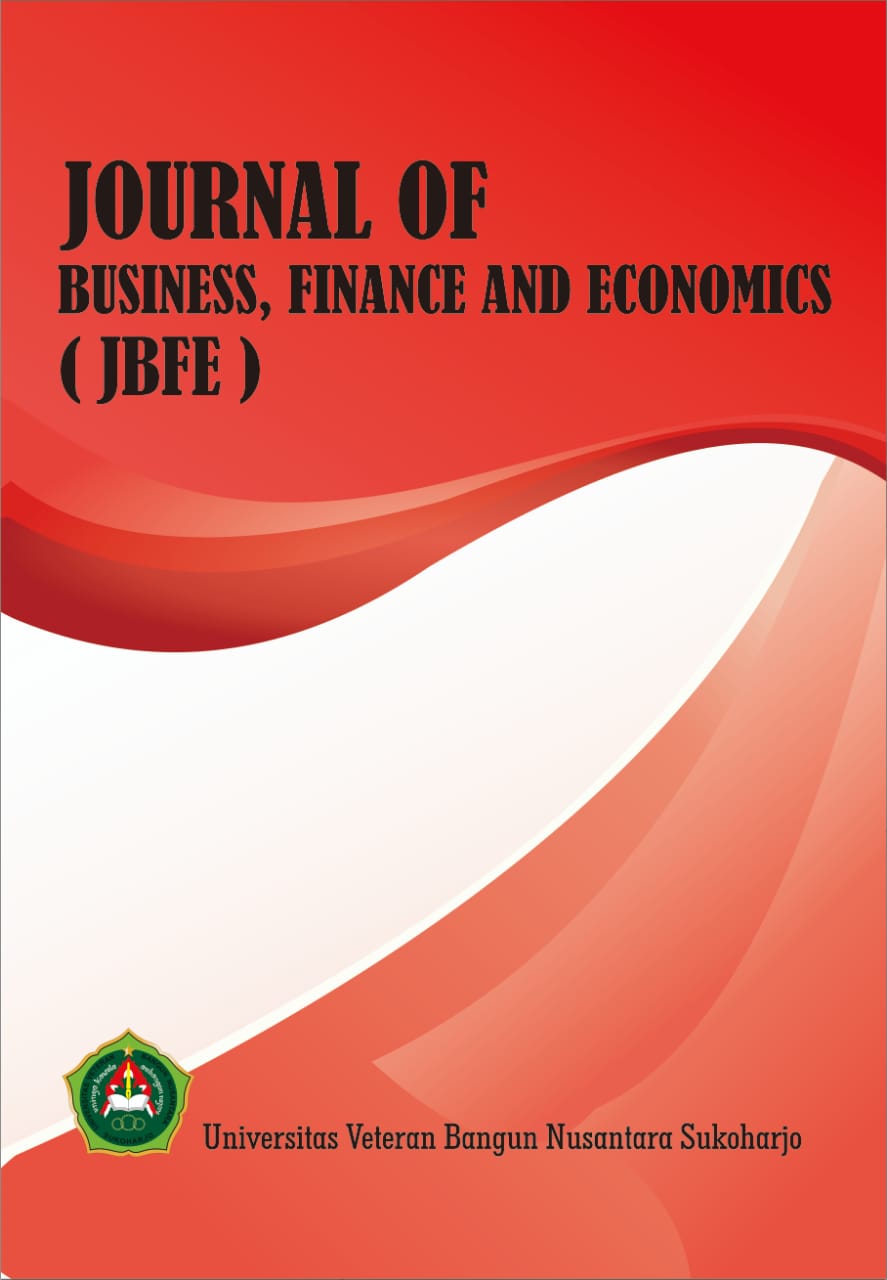Pemikiran Ekonomi Al-Ghazali
DOI:
https://doi.org/10.32585/jbfe.v6i1.6702Keywords:
al-Ghazali, caliphate, distribution, ethics, justice, Islamic economics, maqasid, morality, spirituality, tradeAbstract
This study employs a qualitative method with a literature review approach to examine the economic thought of al-Ghazali, a prominent scholar in the Islamic intellectual tradition renowned not only for his contributions to Sufism and philosophy but also for his insights into economic and social ethics. The research aims to explore situs big77 al-Ghazali’s contributions to Islamic economics, particularly in the framework of justice, ethical trade, and equitable wealth distribution. The study begins by tracing a brief biography of al-Ghazali, his intellectual journey, and his leadership in the classical Islamic scholarly world. The discussion then focuses on his core economic thoughts as reflected in his works such as *Ihya’ Ulum al-Din* and *al-Mustasfa*, which emphasize the balance between spiritual and material needs in economic activity. The research also explores the impact of al-Ghazali’s economic thought during the caliphate era and its relevance in modern economic contexts, especially in addressing challenges related to wealth distribution and business ethics. The findings indicate that al-Ghazali’s ideas remain relevant and can serve as a reference for developing an Islamic economic system grounded in justice and oriented toward public welfare.
Downloads
References
Amir, S. (2022). Etika Ekonomi dan Spiritualitas: Pemikiran Al-Ghazali dalam Konteks Perbankan Syariah. Jurnal Ekonomi Islam Nusantara, 2(1), 31–44.
Anshori, M. (2020). Konsep Maslahah dalam Ekonomi Islam Menurut Al-Ghazali. Jurnal Ekonomi Islam Indonesia, 5(2), 98–110.
Arifin, M. (2021). Konsep Etika Ekonomi Islam Perspektif Al-Ghazali. Al-Amwal: Jurnal Ekonomi dan Perbankan Syariah, 13(2), 112–124.
Asyhar, A. (2022). Peran Spiritualitas dalam Ekonomi Islam: Analisis Pemikiran Al-Ghazali. Jurnal Ekonomi Islam Modern, 7(1), 55–68.
Azizah, N. (2023). Konsep Produksi Islami dalam Pandangan Al-Ghazali. Jurnal Ekonomi dan Bisnis Islam, 5(2), 102–114.
Fadilah, N. (2021). Pemikiran Ekonomi Islam Al-Ghazali: Telaah Maqasid al-Shariah. Jurnal Ekonomi Islam Indonesia, 11(2), 151–164.
Fauzi, M. (2021). Al-Ghazali’s Economic Ethics and Its Impact on Islamic Development. Al-Iqtishadiyah: Journal of Islamic Economics, 6(2), 45–57.
Hadi, R. (2020). Etika Kepemilikan dan Distribusi Harta dalam Pemikiran Al-Ghazali. Jurnal Ekonomi Syariah Darussalam, 2(1), 33–47.
Hakim, T. (2022). Relevansi Pemikiran Al-Ghazali dalam Ekonomi Digital Syariah. Jurnal Ekonomi Islam Digital, 1(1), 77–89.
Hasanah, R. (2021). Analisis Pemikiran Al-Ghazali dalam Ekonomi Mikro Islam. Jurnal Al-Tijary, 6(1), 87–99.
Hidayatullah, S. (2022). Pandangan Al-Ghazali tentang Etika Produksi dan Konsumsi dalam Islam. Jurnal Al-Mashrafiyah, 6(1), 21–34.
Lubis, M. I. (2022). Relevansi Pemikiran Al-Ghazali dalam Etika Bisnis Islam Kontemporer. Al-Iqtishad: Jurnal Ilmu Ekonomi Syariah, 14(1), 67–79.
Maulana, A. (2023). Prinsip Keseimbangan dalam Pemikiran Ekonomi Al-Ghazali. Jurnal Iqtishadia Reform, 3(1), 93–104.
Maulida, H. (2020). Konsep Keadilan Sosial dalam Ekonomi Islam Menurut Al-Ghazali. Jurnal Al-Mashlahah, 8(1), 72–84.
Munawar, R. (2023). Revitalisasi Pemikiran Ekonomi Al-Ghazali dalam Kebijakan Ekonomi Syariah Kontemporer. Tafáqquh: Jurnal Penelitian dan Kajian Keislaman, 11(1), 70–85.
Ningsih, A. (2022). Spiritualitas dan Ekonomi: Telaah Etika Ekonomi Al-Ghazali. Jurnal Islamiconomic, 13(1), 55–70.
Nurhidayati, T. (2020). Konsep Al-Ghazali tentang Kesejahteraan Ekonomi Umat. Tazkia Islamic Finance and Business Review, 14(2), 88–101.
Putri, D. (2023). Distribusi Kekayaan dalam Perspektif Al-Ghazali. Jurnal Ekonomi Islam Global, 9(1), 66–79.
Rahmawati, D. (2021). Epistemologi Ekonomi Islam Perspektif Al-Ghazali. Jurnal Ekonomi Syariah Teori dan Terapan, 8(2), 189–202.
Rakhmat, T. (2023). Prinsip Keseimbangan Ekonomi dalam Pemikiran Al-Ghazali. Jurnal Ekonomi dan Keuangan Syariah, 7(1), 43–58.
Ramadhani, A. (2021). Konsep Konsumsi Islami dalam Pemikiran Al-Ghazali. Jurnal Ekonomi Syariah Al-Falah, 4(1), 73–85.
Rofiq, A. (2020). Kajian Kritis Pemikiran Al-Ghazali tentang Distribusi Kekayaan. Jurnal Al-Amwal, 12(2), 101–113.
Rosyid, A. (2021). Relevansi Konsep Ekonomi Al-Ghazali terhadap UMKM Syariah. Jurnal Iqtishaduna, 9(1), 119–132.
Sholihin, M. (2020). Al-Ghazali dan Konsep Keuangan Publik Islam. IQTISHADIA: Jurnal Ekonomi dan Perbankan Syariah, 7(1), 35–49.
Siregar, E. (2022). Peran Etika Ekonomi Al-Ghazali dalam Ekonomi Syariah Modern. Jurnal Ekonomi Islam dan Bisnis, 6(2), 99–112.
Sukmawati, L. (2023). Al-Ghazali dan Pemberdayaan Ekonomi Masyarakat. Jurnal Ekonomi Syariah Terapan, 4(1), 87–98.
Syamsuddin, I. (2021). Konsep Keseimbangan dan Keadilan Ekonomi dalam Pemikiran Al-Ghazali. Jurnal Iqtisaduna, 8(2), 99–110.
Wahyuni, S. (2023). Perspektif Al-Ghazali dalam Ekonomi Berbasis Ma’ruf dan Munkar. Jurnal Ekonomi Syariah dan Bisnis, 5(1), 112–125.
Yusuf, M. (2022). Ekonomi Spiritual dalam Pandangan Al-Ghazali: Relevansi terhadap Perilaku Konsumen Muslim. Jurnal Ilmiah Ekonomi Islam, 6(1), 58–72.
Zakariya, M. (2021). Al-Ghazali dan Teori Harga dalam Ekonomi Islam. Jurnal El-Barka, 4(1), 43–54.
Downloads
Published
How to Cite
Issue
Section
License
Copyright (c) 2025 Journal of Business, Finance, and Economics (JBFE)

This work is licensed under a Creative Commons Attribution-ShareAlike 4.0 International License.
Authors who publish with the Journal Of Business, Finance, and Economics (JBFE) agree to the following terms:
- Authors retain copyright and grant the journal the right of first publication with the work simultaneously licensed under a Creative Commons Attribution License (CC BY-SA 4.0) that allows others to share the work with an acknowledgment of the work's authorship and initial publication in this journal.
- Authors are able to enter into separate, additional contractual arrangements for the non-exclusive distribution of the journal's published version of the work (e.g., post it to an institutional repository or publish it in a book), with an acknowledgment of its initial publication in this journal.
- Authors are permitted and encouraged to post their work online (e.g., in institutional repositories or on their website) prior to and during the submission process, as it can lead to productive exchanges, as well as earlier and greater citation of published work.














